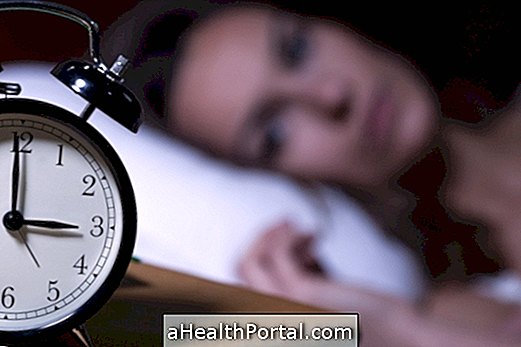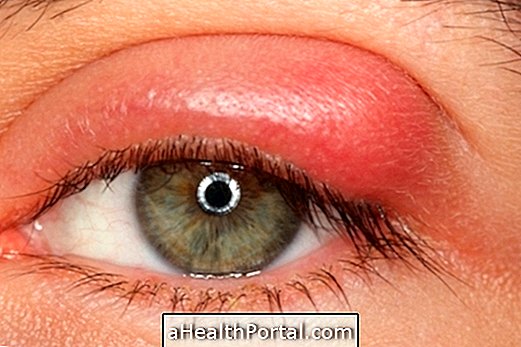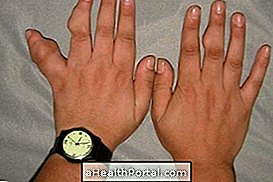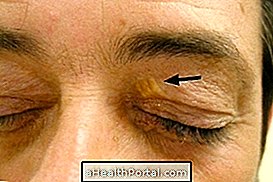Insomnia is a sleep disorder that causes difficulty in falling asleep or staying asleep, which may occur sporadically or if it is frequent. This situation is more common in periods of stress, and may also be associated with diseases such as depression, or be associated with situations such as pregnancy, menopause or in the elderly, periods that cause changes in the body's physiology.
To treat insomnia, it is very important to adopt good habits to re-educate the body to fall asleep at the right time, called sleep hygiene therapy, such as avoid watching television or looking at the cell phone at bedtime, avoid lying down every day at a different time and exercise during the day, for example. In addition, there are natural remedies, such as passion fruit tea or chamomile, which can be used to facilitate sleep.
However, sleeping pills such as Diazepam or Clonazepam, for example, should be avoided because of their risk of dependence and side effects such as falls, and should be used only under medical indication.

Common Causes
The causes of insomnia may be related to stress, anxiety and even overconsumption of stimulant foods, such as coffee. Other common causes of insomnia include:
- Depression;
- Hormonal changes, such as menopause. Learn what causes and how to beat menopausal insomnia;
- Use of illicit drugs;
- Prolonged use of sleeping pills;
- Not having good sleep habits, such as not respecting bedtime and waking up;
- Jet Lag syndrome or the change of time zones;
- Continuous changes of schedules, as happens with professionals who work in shifts;
- Aging, as the elderly are more prone to changes in sleep and difficulty sleeping. Know the ways to fight insomnia in the third age to sleep better;
- Diseases, such as fibromyalgia, which generates pain throughout the body without apparent justification, causing fatigue.
The diagnosis of insomnia should be made through the physician's evaluation of sleep pattern, medication use, degree of psychological stress, alcohol consumption, and level of physical activity. It should be based on individual needs because the need for hours of sleep is not the same for everyone.
How to treat
The main ways to treat insomnia include:
1. Natural treatment
Natural treatment for insomnia can be done by ingestion of a soothing tea such as passion fruit, St. John's wort, tilia or chamomile, for example, as they are medicinal plants possess soothing properties that will help you sleep better.
Tilia tea is made by adding 2 tablespoons of linden to 2 cups of boiling water, capping and drinking about 2 to 3 cups a day when lukewarm. To make chamomile tea, one should add 1 tablespoon of dried chamomile flowers in 1 cup and add boiling water and when warm, drink.
In addition, it is possible to use natural herbal remedies, such as Valeriana, which has sedative and analgesic action. See other natural remedies and recipes to combat insomnia.

2. Sleep Hygiene Therapy
This is the main and most effective way of treating insomnia, and is to adopt habits that facilitate sleep. Some examples are:
- Lie down and get up at the same time every time;
- Avoid sleeping during the day;
- Do not watch television, tinkering with cell phones, computers or tablets 1-2 hours before bedtime;
- Avoid staying in bed throughout the day or doing various activities such as studying, reading or tinkering on the cell phone;
- Avoid excessive lights or noises in the room;
- Prefer physical activities during the day;
- Eat light food before bed. Check out what foods are indicated for insomnia and what to avoid.
In addition, cognitive-behavioral therapy or alternative therapies such as meditation, acupuncture, massage or phototherapy, for example, may also be recommended. Check out what are the top sleep therapy methods for better sleep.
3. Treatment with medicines
Treatment for insomnia can be done by taking anxiolytic or sleeping medicines as they are popularly called, such as Flurazepam, Clonazepam or Diazepam. See more examples in: Remedies to help sleep.
However, these drugs should only be used after the doctor has indicated them and in very specific cases, as they may cause dependence and side effects, such as falls and memory changes, and may even worsen the individual's sleep.

























